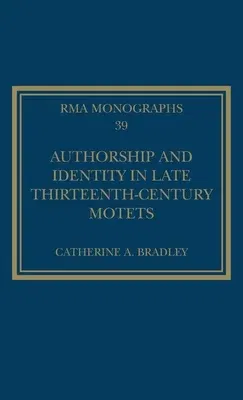Catherine A Bradley
(Author)Authorship and Identity in Late Thirteenth-Century MotetsHardcover, 31 March 2022

Qty
1
Turbo
Ships in 2 - 3 days
Only 4 left
Free Delivery
Cash on Delivery
15 Days
Free Returns
Secure Checkout

Part of Series
Royal Musical Association Monographs
Print Length
136 pages
Language
English
Publisher
Routledge
Date Published
31 Mar 2022
ISBN-10
103219457X
ISBN-13
9781032194578
Description
Product Details
Author:
Book Format:
Hardcover
Country of Origin:
US
Date Published:
31 March 2022
Dimensions:
21.59 x
13.97 x
1.12 cm
Genre:
Christian
ISBN-10:
103219457X
ISBN-13:
9781032194578
Language:
English
Location:
Oxford
Pages:
136
Publisher:
Weight:
331.12 gm